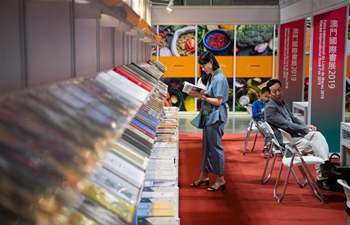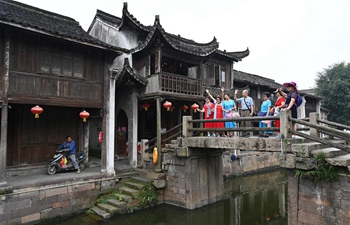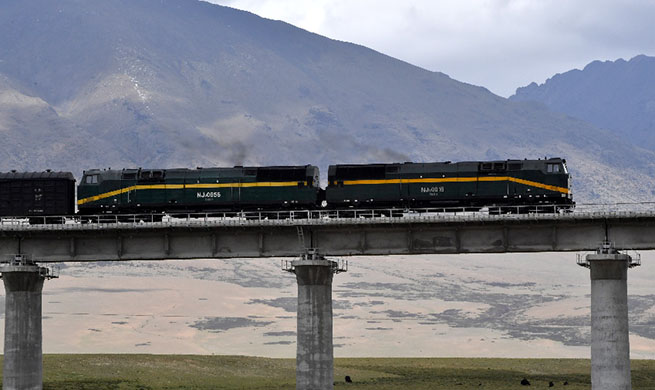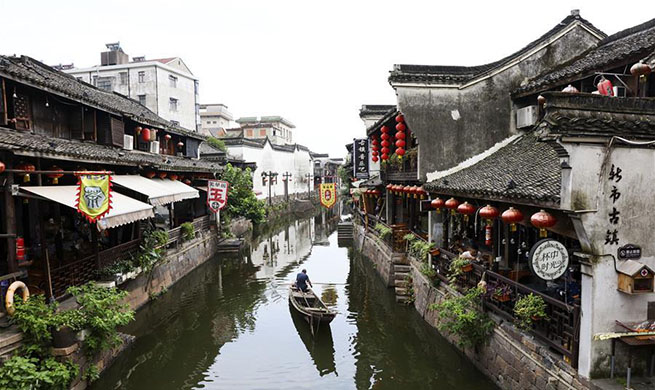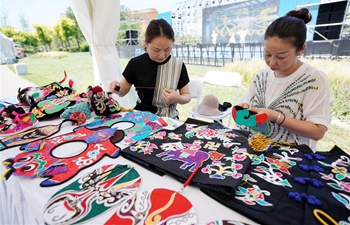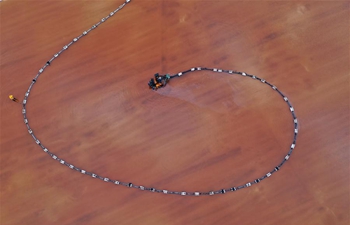TOKYO, July 5 (Xinhua) -- Bilateral ties between Japan and South Korea have again begun to unravel as a number of disputed issues rooted in Japan's wartime colonization of the Korean Peninsula have resurfaced with a magnitude that could have a significant bearing on the two countries' diplomacy as well as economic and trade relations.
The Japanese government on Friday said the decision by South Korea to dissolve a fund set up to settle the so-called "comfort women" issue was unacceptable, as the flames of discontent continue to be fanned by both sides.
Japanese Deputy Chief Cabinet Secretary Yasutoshi Nishimura said Japan "can never accept" the decision (to dissolve the fund)." His remarks followed reports that Seoul had formally dissolved a foundation to which Japan had provided 1 billion yen (about 9.27 million U.S. dollars) to help former "comfort women" and their families.
Soldiers from the Imperial Japanese Army during World War II coerced and kidnapped hundreds of thousands of girls and women and forced them to work as sex slaves, servicing Japanese soldiers at military brothels.
Euphemistically, these sex slaves have come to be known collectively as the "comfort women."
Most of these women, with renowned scholars putting the figure at 400,000, came from Asia including China and the Korean Peninsula.
The Japanese government, through a diplomatic channel, reasserted its call for the South Korean government to implement an agreement made in 2015 on the issue, sources close to the matter here said Friday.
Under the agreement reached in December 2015, Japan provided the funds to the foundation to help former "comfort women" and their families, and, for Tokyo's part, the agreement reached was supposed to settle the issue "finally and irreversibly."
Seoul maintains that the "comfort women" issue has not been settled, as the will of the surviving victims has not been reflected. It also said the 2015 deal falls a long way short of the reparations due in light of the immeasurable suffering inflicted on the "comfort women" and Japan's seeming inability to truly voice its remorse as evidenced by myriad efforts to whitewash its wartime wrongdoings.
Along with an undercurrent of tensions stemming from Japan's wartime atrocities as well as a long-running territorial dispute between Tokyo and Seoul, a South Korean top court ordered Japanese companies to pay compensation for forced wartime labor during its occupation of the Korean Peninsula, adding to bilateral disharmony recently.
Bilateral ties have become further strained following Japan's moves to impose stricter rules on its exports to South Korea of some materials used in high-tech products.
Under the new restrictions that came into effect Thursday, Japanese manufacturers will now have to file individual applications for exports to South Korea of fluorinated polyimide, hydrogen fluoride and resists that are commonly used in smartphone displays and chips, mainstays of South Korea's tech-forward economy.
Japan has said the reasons for the move were for national security and not a retaliation against Seoul over the war time forced labor dispute.
"South Korea did not show a satisfactory solution over the issue of former workers on the Korean Peninsula before the Group of 20 (G20) summit through Saturday, and we can not help but to say the relationship of trust has been severely damaged," Japan's Chief Cabinet Secretary Yoshihide Suga said earlier this week.
The South Korean government, meanwhile, has slammed the measures by Japan to tighten some of its export regulations, calling them "economic retaliation."
Japan has said the rulings by South Korea's top court for Japanese firms to pay compensation for the forced labor of plaintiffs, with lawyers being permitted to seize and liquidate the assets of some Japanese companies it deems culpable, are not in line with international law and run contrary to the foundation of friendly and cooperative relations between the two neighbors since the 1965 normalization of diplomatic ties.
While the need for fairly urgent dialogue from both sides is evident to prevent escalation, for Japan's part, its "non-retaliatory" measures for a perceived lack of cooperation from Seoul on wartime labor arbitration parameters could negatively impact Japanese firms as well as their suppliers in South Korea.
Industry commentators here have expressed concern that the effects could, theoretically for now, harm both sides' economies and damage bilateral ties to untold measures.
"So far, the export of semiconductor materials themselves is not being banned. But as the screening period grows longer, some analysts project considerable shutdowns of semiconductor production in South Korea," Japan's Asahi Shimbun said in a recent editorial on the matter.
"And that will quite likely hurt Japanese companies that do business with South Korea. Ultimately, South Korean manufacturers may turn to non-Japanese suppliers," the national newspaper said, adding that, "dragging a political conflict into economic activities will do incalculable harm to Japan's relations with South Korea."



